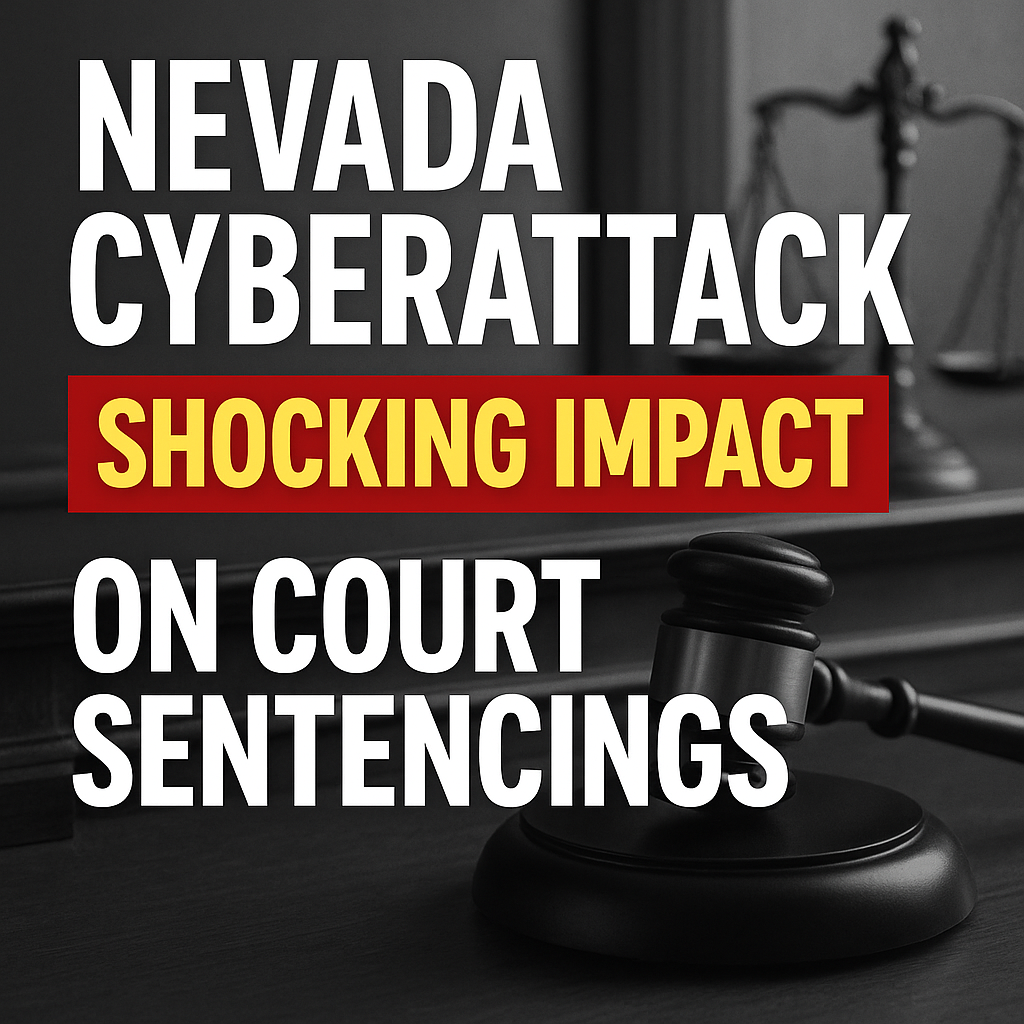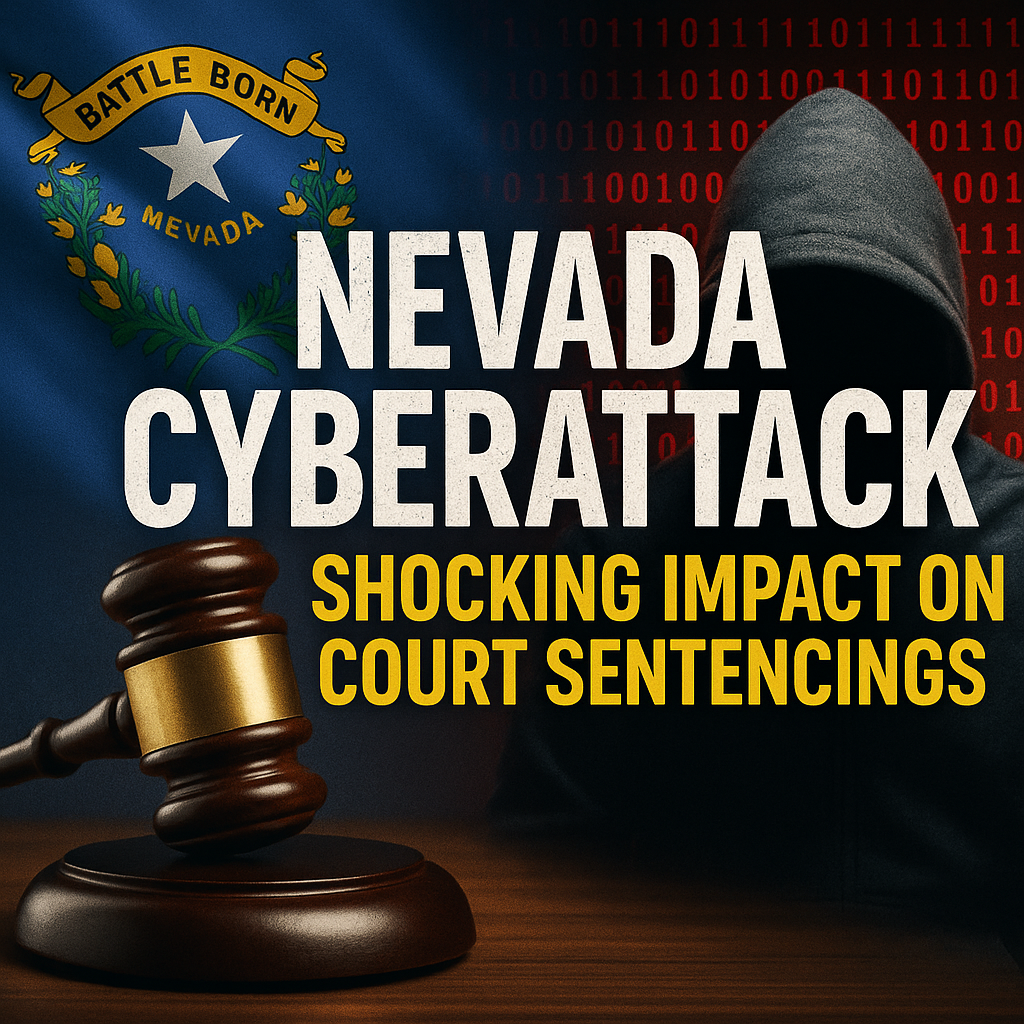Nevada Cyberattack: Shocking Impact on Court Sentencings
Nevada Cyberattack: Shocking Impact on Court Sentencings
The Nevada cyberattack has created ripples across various sectors, raising alarms about its consequential effects on court sentencings. As news of the breach continues to unfold, the implications for justice and public trust in the state’s legal system become more complex.
The Security Breach: A Depth of Impact

The recent cyberattack on Nevada’s judicial system not only targeted sensitive data but also disrupted court proceedings across multiple jurisdictions. According to reports from the Review Journal, the attack compromised critical systems used to manage case files, leading to delayed hearings and uncertainty regarding legal outcomes. Courts in Nevada found themselves saddled with postponed cases, raising concerns over justice being served in a timely manner.
Consequences for Sentencings
One of the most pressing concerns in the aftermath of the cyberattack is the potential impact on court sentencings. Legal experts warn that postponed or canceled court dates may lead to a backlog of cases, creating a chaotic environment where justice may unintentionally wane. With fundamental case management systems compromised, defendants awaiting trial or sentencing could face extended periods of uncertainty.
As articulated by legal professionals in various reports, including insights from 8 News Now, the instability created by this cyber vulnerability could disproportionately affect those on the margins of society. Individuals awaiting sentencing may find themselves in prolonged limbo, raising questions about the fairness of the judicial process.
Consensus and Divergence Among Experts
The responses to the cyberattack have not been monolithic; experts express a range of opinions on what these breaches mean for the judicial system. While some experts argue that the overwhelming evidence points toward significant risks—including delayed justice and potential miscarriages of justice—others emphasize the resilience of the judicial system and the potential for recovery.
Some legal analysts note that although backlogs may be created, the legal frameworks within Nevada are designed to adapt to such challenges. They argue that, with proper remediation efforts and enhanced security protocols, the risks can be mitigated in the long run. Conversely, others highlight a lack of preparedness and call for immediate, comprehensive strategies to bolster cybersecurity measures in the judicial sector.
The Public Sentiment
Public sentiment regarding the cyberattack is equally diverse. Many residents express concern over the implications for justice, apprehensive that such a significant breach could undermine the very fabric of the legal system. “People need to feel that their cases are being handled fairly and promptly,” noted a local attorney, expressing the frustrations shared by constituents.
On the other hand, some believe that the incident sheds light on the vulnerabilities present in many government systems, suggesting this could be a wake-up call for the state to invest more seriously in digital security. In turn, this perspective reinforces the need for ongoing dialogues about cybersecurity across all public sectors, including judiciary, healthcare, and education.
Looking Ahead: Repairing the System
As discussions around the Nevada cyberattack unfold, a critical question remains: how will the state move forward? The need for a robust plan to repair and enhance cybersecurity in the court system is clear. It will not only involve rebuilding existing infrastructure but also implementing newer technologies designed to safeguard sensitive information moving forward.
Recommendations include:
– Investing in Updated Technology: Integrating advanced cybersecurity measures can help protect valuable court records and case management systems.
– Training for Staff: Continuous training for judicial staff on cybersecurity best practices is vital for ensuring minimal disruption during future incidents.
– Public Accountability: Transparent communication with the public regarding what steps are being taken can help restore trust in the system.
In conclusion, the Nevada cyberattack serves as a significant reminder of the fragility of our judicial systems in an increasingly digital world. As stakeholders navigate these complex challenges, the hope remains that justice will not only be served but improved in its resiliency against future threats.





